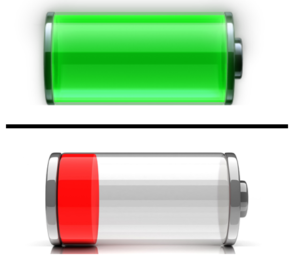
When You’re Having Trouble Figuring it Out
Ever wonder why executive coaching works?
My twelve-year-old son came into my home office this evening and said, “Dad, can you help me with my math homework? I can’t figure it out.”
He then explained “John has a cube and doubles the length of the edge. What’s the ratio of the original cube’s surface area to the new cube’s surface area?” Immediately, he stopped. “Oh, wait. I must have misread it before. I get it now. Thanks.”
On his way out, he stopped. Then the ah-ha moment. “Dad, have you ever noticed that if you just say a problem out loud it can make a lot more sense, and you all of a sudden figure it out?”
Sounding Board Effect
Sometimes this is called “the sounding board effect.” There’s sort of a 1+1=3 dynamic going on.
 While there are a lot of reasons why executive coaching is so powerful, one important reason it works has to do with getting problems out of your head and into spoken words, clearly. It changes everything. In fact, it’s not just about getting the problem out of your head, it’s the journey of trying to articulate what ARE the problems.
While there are a lot of reasons why executive coaching is so powerful, one important reason it works has to do with getting problems out of your head and into spoken words, clearly. It changes everything. In fact, it’s not just about getting the problem out of your head, it’s the journey of trying to articulate what ARE the problems.
We all tend to jumble problems and solutions in our heads. They get all twisted up like spaghetti sometimes. We end up making solutions unreachable because problems are so unclear in our heads. And somehow in trying to describe problems to another, we articulate them better verbally than we could have in our own head.
Hearing Yourself Think
And just hearing yourself ask the right question to your coach or mentor can make you feel a little stupid — because you might think: “Why didn’t I just figure that out myself?” The solution can follow so naturally from a clear question. This a common experience in a coaching relationship.
Just as a personal trainer doesn’t have to have mind-blowing insights (e.g., “It appears that you’re not eating very healthy or getting enough exercise this decade”), neither does an executive coach. Many of the best solutions will unfold in such a natural pace once the problem is clearly articulated. The dedicated time with your coach, taking a step back, focusing on articulating problems, thinking clearly, reflecting, and being heard, lead to a better path forward.
Of course, there are many other reasons why executive coaching “works,” (e.g., 360 assessment data that reveal bind spots, personality assessments and prove you really are different, new skill development, creating more strategic goals, improved accountability). But the sounding board effect — or whatever you call this thinking-out-loud dynamic — is certainly one important reason.
Executive Coaching “Freebie”
It’s hard to put into words how executive coaching works. If you want to experience a meeting in a no-risk, Costco-style taste-test sort of way, just let me know. I’ll send a calendar invite with the call in number.



